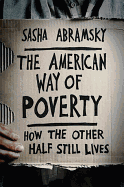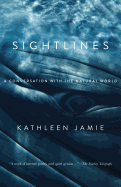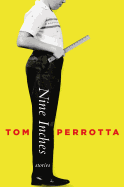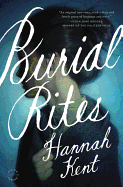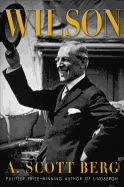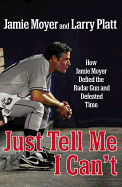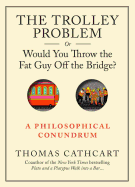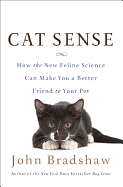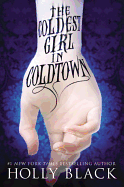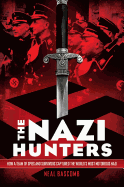Friday, September 20, 2013
Yes, more big books--although when a nonfiction book is lengthy, it's usually described as "substantial," rather than fat. Worthy of serious consideration is Norman Mailer: A Double Life by J. Michael Lennon (Simon & Schuster, $40, October 15)--at 960 pages, possibly the winner in the length sweepstakes this season--an authorized portrait by a Mailer friend and scholar. The heft can be increased by pairing it with Mind of an Outlaw: Selected Essays, edited by Phillip Sipiora (Random House, $40, October 15), at 656 pages--Mailer's witty, opinionated and smart short pieces.
Another contender in the length sweepstakes is A Life of Barbara Stanwyck: Steel-True, 1907-1941 (Simon & Schuster, $40, November 12). Victoria Wilson has turned in 1,056 pages for just the first volume of what the publisher calls a groundbreaking biography with the historical overview of a Robert Caro or a David McCullough.
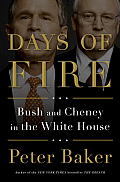 Days of Fire: Bush and Cheney in the White House by Peter Baker (Doubleday, $35, October 22): 816 pages. "The real story of Bush and Cheney is a far more fascinating tale than the familiar suspicion that Cheney was the power behind the throne."
Days of Fire: Bush and Cheney in the White House by Peter Baker (Doubleday, $35, October 22): 816 pages. "The real story of Bush and Cheney is a far more fascinating tale than the familiar suspicion that Cheney was the power behind the throne."
In Fosse by Sam Wasson (Houghton Mifflin Harcourt, $32, November 5), the author reveals "the deep wounds that propelled Bob Fosse's excessive appetites--for spotlights, for women, and life itself." It would be facile to say, at 736 pages, that the length is also excessive, but dip into the book anywhere and it will hook you.
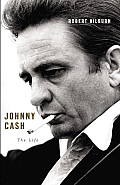 Johnny Cash: The Life by Robert Hilburn (Little, Brown, $32, October 29): 688 pages. "People don't just listen to Johnny Cash--they believe in him. But no one has told the Man in Black's full story, until now." For his fans, the book won't be long enough.
Johnny Cash: The Life by Robert Hilburn (Little, Brown, $32, October 29): 688 pages. "People don't just listen to Johnny Cash--they believe in him. But no one has told the Man in Black's full story, until now." For his fans, the book won't be long enough.
Fat books provide the proverbial more-bang-for-your-buck reading pleasure; at the same time, they can be mightily impressive on a coffee table (right next to your Proust), with a bookmark casually tucked about halfway through. --Marilyn Dahl, editor, Shelf Awareness for Readers
Nine Inches: Stories
by Tom Perrotta
In Nine Inches, Tom Perrotta (Little Children) captures the quiet desperation that runs rampant in suburbia. Even though there's plenty of modernity ("selfies," skinny jeans and organic pizza), Perrotta's comically tragic short stories also conjure up melancholy themes from the past. Neighbors are having affairs, teenagers are drinking too much and even teachers are less than stellar role models.
As with most satire, readers probably won't see themselves in these vignettes, but Perrotta still hits the bull's-eye in a way that's disturbingly satisfying. In "The All-Night Party," a divorced soccer mom confronts her feelings of powerlessness by taking an entitled teenager to task. In "The Test-Taker," a nerd gets revenge on a popular jock who steals the girl he loves. And in the creepy "The Back Rub," an older police officer hits on a high school delivery boy. As Perrotta's upper-middle-class white characters make a hash of things over and over, the stories ring with unsettling truth.
A few bits of diversity permeate this homogeneous suburban world in "The Smile on Happy Chang's Face," which touches on a father's disappointing reaction to his gay son and brings a Chinese family's loyalty into the mix. And Perrotta weaves discordant notes throughout the seemingly perfect settings. His work can be funny--though it's often sad--but it always seems to encapsulate the yearning, frustration and disappointment revealed when you get everything you're supposed to dream of. --Natalie Papailiou, author of blog MILF: Mother I'd Like to Friend
Discover: Tom Perrotta's latest commentary on "the 'burbs" comes in a series of sharply written and revealing short stories.
Burial Rites
by Hannah Kent
Iceland's last executions for murder took place on January 12, 1830--beheading, as prescribed by Danish law. One of them was a young woman, Agnes Magnusdottir. Burial Rites, Hannah Kent's debut novel, renders Agnes's unforgettable and woeful story brilliantly. Throughout, Kent juxtaposes rich, imagistic prose with dry, insensate excerpts from official documents about the case.
Kent gives us two first-person narrators: Agnes and the young, inexperienced Reverend Toti, assigned to save her soul before her execution.
Iceland had no prisons at the time; Agnes, awaiting execution, is housed in the barn of a God-loving family who beat her mercilessly, kept in a lightless room filled with her own fetid breath and the stench from the chamberpot. Then she's moved to a different family's stark and cold cottage--to them, she "looked like a new corpse, fresh dug from the dirt." Even the wife, an old crone, Margret, takes pity on her.
Now able to work outside at harvest, to see the sky, Agnes feels better. Reverend Toti visits often and, story by story, she tells him about her wretched life: abandoned as a child, maid to families who treated her like a slave. The story behind the crime becomes clearer. Agnes, another maid (later pardoned) and Natan, a man she had feelings for, are convicted of stealing from, then killing, two men and burning down the barn where the crime took place. Kent keeps Agnes's guilt ambiguous.
Burial Rites is a deeply emotional, gripping story. A cross between the grim, moorish atmosphere of Wuthering Heights and the cold, religiously-infested repression of a Bergman film, Kent's novel emerges alive, triumphant and sublimely poetic. --Tom Lavoie
Discover: Though dark and baleful, this stunning debut novel about a young 19th-century Icelandic woman executed for murder is uplifting and overpowering in its telling.
Enon
by Paul Harding
Charlie Crosby, the protagonist of Enon, is the grandson of George Crosby from Paul Harding's Pulitzer-winning Tinkers. Like that novel, Enon is set in New England, but everything else has changed. In one year of Charlie's life, we see the ravages wrought by the death of his 13-year-old daughter, Kate, killed by a car while riding her bike. A week after the funeral, his wife, Susan, goes to visit her family in Minnesota; that is the last he sees of her.
Charlie's grief is monumental, self-destructive and nearly fatal. In an outburst of rage and helplessness, he breaks the bones in his hand punching through a wall. Now he requires pain medication just to function. Through it all, Harding captures the times that Charlie and Kate spent together--feeding birds, going for walks, talking about everything--so we know what he has lost.
One night, looking for drugs, he breaks into the house of a very old woman, Mrs. Hale, who upbraids him. When he apologizes for being in her house, she tells him: "Well and fine, Mr. Crosby, but your sorrows are selfish.... I should think you would be grateful for the blessing of having had a lovely child. Enough is enough."
He hears this oracular pronouncement and thinks: "I realized that what I had been doing since Kate's death was nothing short of violence. It was not grieving or healing or even mourning, but the deliberate, enthralled persistence in the violence of her death." He is finally able to come back to some kind of life. --Valerie Ryan, Cannon Beach Book Company, Ore.
Discover: A deeply interior novel that explores the workings of grief felt by a father after the death of his daughter.
Biography & Memoir
Wilson
by A Scott Berg
The short title of A. Scott Berg's masterful biography of 28th U.S. president Woodrow Wilson belies its accomplishment. Berg is a biographer par excellence: his Max Perkins won a National Book Award, his Lindbergh a Pulitzer. Wilson might be his best yet. Scholars call books like this definitive.
Even though Theodore Roosevelt described him as "an apothecary's clerk," Wilson was, by his own admission, extremely sexual and handsome. His famous pince-nez glasses covered for one nearly blind eye. Son of a Presbyterian minister, he was religious, reading his Bible every night, but he also loved to sing and tell corny jokes. George F. Kennan said no president ever looked or acted the part as well.
President of Princeton in 1902, governor of New Jersey in 1910, and president in 1912, Wilson enjoyed the "most meteoric rise in American history." His "New Freedom" worked to protect the poor while the executive and legislative branches worked co-operatively to pass legislation. He said the government should be more concerned with "human rights" than "property rights." He created the Federal Reserve Board and even offered the first government bailout of a private industry. After being reelected, he worked to make the world "safe for democracy" and forever affixed his name to the vision of a League of Nations. Regrettably, this Southern president and his administration also instituted "Jim Crow" laws.
Berg's portrait of the president whom Truman called the "greatest of the greats" is magnificent. --Tom Lavoie, former publisher
Discover: A beautifully readable, impeccably researched biography of the man who went from running an Ivy League university to running the United States in a single decade.
Just Tell Me I Can't: How Jamie Moyer Defied the Radar Gun and Defeated Time
by Larry Platt and Jamie Moyer
Jamie Moyer is the oldest pitcher ever to win a major league baseball game. His long, arduous journey to earn that achievement is what drives Just Tell Me I Can't, a memoir Moyer co-wrote with Philadelphia Inquirer columnist Larry Platt. Moyer's passion and tenacity for the game shines on every page of this detailed chronicle of what it takes to come back, time and again, amid the pressures of professional baseball--namely how Moyer, with a surgically rebuilt pitching arm, pushed past naysayers to make one last heroic stand on the mound for the Colorado Rockies when he was 49.
The book delves into the psychology behind the art of pitching. Moyer, a cerebral ballplayer, was devoted to mastering the "ever-elusive mental side" of the game to prolong his career. He credits and pays homage to Harvey Dorfman, a wise, gruff, tough-love coach and heralded sports psychologist who, over the course of 20 years, helped the aging, physically challenged Moyer to shed his fear, doubt and lack of self-confidence. Dorfman's no-nonsense ethic of awareness and action motivated Moyer to reinvent his thought processes, believe in himself and capitalize on his strengths. With an 81-mile-per-hour fastball and a changeup pitch that "lived on the back corners of home plate," he eventually won more games in his 40s than in his 20s. The remarkable story of his long career--and Dorfman's influence--is sure to inspire athletes and baseball fans. --Kathleen Gerard, blogger at Reading Between the Lines
Discover: A baseball player conquers physical and mental limitations to become one of the winningest pitchers in the major leagues over a 16-year career.
Current Events & Issues
The American Way of Poverty: How the Other Half Still Lives
by Sasha Abramsky
Using The Other America--Michael Harrington's 1962 look at poverty--as a model, freelance journalist Sasha Abramsky compiled research, interviews and observations that spotlight the continuing and deepening issue of poverty in the United States. Abramsky's approach is both heartbreaking in its look at the humans who are affected and inspiring in his explanations of how poverty can be addressed and improved.
In its first section, The American Way of Poverty brings readers face to face with the realities of those living below the poverty line. The numbers are increasing rapidly due to unemployment, skyrocketing health care costs, the housing crash and natural disasters. Abramsky debunks myths and shows that the political system works to hold people in a state of penury, driving many to lose hope entirely. He also discusses how poverty is intertwined into most major issues facing the U.S. today, from health care to education and immigration.
The second section offers realistic, proven approaches to alleviate the state of impoverishment in this country. Abramsky doesn't claim that poverty will be eradicated, but that it can be improved with the help of empathy, education and fair politics.
The American Way of Poverty is likely to cause fear--almost no one is exempt from unplanned disasters--but it is also likely to motivate: there are answers; this country can and should improve. Well researched and documented, Abramsky's eye-opening book should be required reading for all U.S. citizens. --Jen Forbus of Jen's Book Thoughts
Discover: With personal stories, meticulous research and obvious passion, a journalist investigates poverty in the U.S. in an effort to inspire change.
Philosophy
The Trolley Problem, or Would You Throw the Fat Guy Off the Bridge?: A Philosophical Conundrum
by Thomas Cathcart
The question at the heart of Thomas Cathcart's The Trolley Problem is straightforward, though the answer may not be. You're standing near a train junction where five men are working. You see a trolley car headed toward the workers, certainly ending their lives. On a second track is one man, and you happen to be standing near a switch that can divert the trolley. Should you do nothing and let fate take its course, or do you throw the switch, saving the five workers but taking responsibility for that man's death?
If that answer comes easily, try this slightly different scenario: instead of a switch, you're on the footbridge with an overweight man, and the only thing that can slow the trolley and save those five men is a large, heavy object on the track. Do you push the man? Do you feel more justified pulling the switch than you would pushing the man?
These thought problems make for great dinner conversation, but in less capable hands could result in a dry, didactic book. Thankfully, Cathcart puts the problem into narrative form, teasing out possible answers through a story that reads like an episode of Law and Order written by philosophy professors. It's a brisk, engrossing book, and while the "answers" may only create more questions, you'll see train junctions in a whole new light after reading it. --Matthew Tiffany, counselor, writer for Condalmo
Discover: The needs of the many outweigh the needs of the few--or do they? The co-author of Plato & a Platypus Walk into a Bar raises unsettling questions in his death-or-more-death scenarios.
Nature & Environment
Sightlines
by Kathleen Jamie
The prose in the essays in Sightlines shows why Kathleen Jamie (The Overhaul) is one of the United Kingdom's most renowned poets. Her knack for finding deep meaning in details many people would consider too ordinary for exploration--and doing so in a precise, sophisticated, yet informal voice--shines through in this exploration of Scotland, lands farther north and the confines of the human body.
Jamie's meditations invite the reader to linger and ponder, as when the excavation of a "henge," an archeological site featuring standing stones, causes her to muse, "You are placed in landscape, you are placed in time. But within that, there's a bit of room to manoeuvre." Her pitch-perfect metaphors make this a work to be savored rather than gulped as she puts words to feelings that usually beggar description, such as the day following her mother's death: "The days following such a death, when death is a release rather than a disaster, have a high, glassy feel, as though a note was being sung just too high to hear."
Each essay opens with a black-and-white photograph that pertains to its subject, including images of a prehistoric tomb, two seabirds soaring above their colony, even a cluster of giardia parasites invading a small intestine. Despite the varied topics, though, Jamie holds to her central tenet: we are in nature, and nature is also in us. --Jaclyn Fulwood, youth services manager at Latah County Library District and blogger at Infinite Reads
Discover: A collection of beautiful and unusual essays on the natural world from Scottish poet Kathleen Jamie.
Pets
Cat Sense: How the New Feline Science Can Make You a Better Friend to Your Pet
by John Bradshaw
John Bradshaw follows up Dog Sense by turning his attention to the domestic cat, the most popular pet in the world, in Cat Sense. Citing the old maxim "dogs have owners, cats have staff," Bradshaw sets off to examine feline science in an effort to understand better the enigmatic creature.
Cat Sense looks at the history of the domestic cat: its genetic roots, how it came to be domesticized and its transition to house pet. From there, Bradshaw examines the interaction of cat and human, showcasing facts even most avid cat owners will find fascinating and enlightening, about such matters as cats' solitary natures and the biology behind purring.
Despite its popularity, the domestic cat also has a growing group of detractors who revile the animal because of its purported hunting character. Bradshaw addresses this behavior and discusses how humans once desired cats for this reason. He also offers up potential ways to keep domestic cats evolving so that they remain compatible with humans.
Using research, his background in anthrozoology and his personal experiences with cats, Bradshaw has written a scientific book that remains easily accessible to any cat owner. He admits up front there is still plenty to learn about the domestic cat, but Cat Sense is a solid starting point and a must for present owners and potential owners alike. Readers will be more aware of their companions' behaviors and what those behaviors mean in terms of the human-cat relationship, thereby creating a richer, more fulfilling connection for each. --Jen Forbus of Jen's Book Thoughts
Discover: John Bradshaw helps humans better understand the mysterious nature of the domestic cat.
Poetry
Marvelous Things Overheard: Poems
by Ange Mlinko
Ange Mlinko is a poet and columnist for the Nation; her work has been compared with the conversational style of Frank O'Hara and praised for its "unique sense of humor and mystery." Her fourth collection, Marvelous Things Overheard, draws on her time at the American University of Beirut and her travels in Morocco, Greece and Cyprus, all conflict-ridden places of visual and cultural density. She invokes mythology and history with exacting and beautiful language. "Flashflood: Arethusa," which compares a hurricane with a Greek nymph, is shocking in its evocation of watery violence. "The vibration running through the ebbing afternoon/ Isn't unusual," Mlinko writes of the storm's beginning. "The wind is."
Throughout the collection, Mlinko uses the unfamiliar as a way to let us see the familiar anew, as in the very brief "Etna":
"She wakes at dawn. Eos has played some kind of trick:
She is covered in ash. As if she were in some old flick."
History itself becomes a way of commenting on how we see the past.
The entire collection is also a celebration of words, with titles like "Wingandecoia" and "Words Are the Reverse of Pain." Each poem reveals a mind that is imaginative, rigorous and cerebral at work, testing the limits of language. In the collection's final, hopeful lines, Mlinko writes:
"Coolly the bodies of experts
the professional committees,
hone their vocab to tweasers...
we life-forms are evolving
only toward more feeling."
--Jeanette Zwart, freelance writer and reviewer
Discover: A startling, imaginative collection from one of the most fearless young poets working today celebrates the wonder of language while exploring its failings.
Children's & Young Adult
Boxers & Saints: A Graphic Novel Diptych
by Gene Luen Yang
For maximum appreciation of Gene Luen Yang's (American Born Chinese) extraordinary achievement with this "graphic diptych," Boxers and Saints must be read together. Boxers unfolds through the eyes of Little Bao, the third of three sons living in 1894 Northern Shan-tung Province; while Four-Girl--the only one of four daughters to survive past a year--guides readers through Saints. Their paths criss-cross in the two books. It's a brilliant way to approach any conflict, but especially one as complex as China's Boxer Rebellion.
Though he's illiterate, Little Bao learns the history and legends of China through operas about the Monkey King and the God of War. The arrival of the Europeans leads Little Bao to Red Lantern, an expert in the martial arts, and Bao's ascension within the Brother-Disciples of the Society of the Righteous and Harmonious Fist, the chief defenders of the powerless peasantry. As they fight, Yang's graphic novel sequences chart their metamorphosis into the deities Bao knows through his love of opera; peasants transform into gods, like Clark Kent to Superman. Similarly, in Saints, Four-Girl discovers a kindness among the Christians that she doesn't find at home. In a moment of great desperation, she sees a vision of Joan of Arc.
Crossover appearances between the two books convey a larger historical context. Lark Pien's use of color in an otherwise earth-toned palette endows each book with its transcendent quality. Yang convincingly conveys two sides to this complex story, each deserving of a hearing. --Jennifer M. Brown, children's editor, Shelf Awareness
Discover: National Book Award finalist Gene Luen Yang's ingenious approach to the 19th-century Boxer Rebellion, through the eyes of two protagonists on opposite sides.
The Coldest Girl in Coldtown
by Holly Black
Holly Black here combines the psychological tensions of her Curse Workers series and the urban goth flair of her Modern Faerie Tales in an unusual take on the vampire genre.
Vampires are on the rise, and governments have set up walled towns within towns to contain the undead. Springfield, Mass., boasts the biggest and best known "Coldtown." Its live broadcasts, videos and blogs make it a social media feeding frenzy--literally. Lucien Moreau, who has brought vampires out of the shadows and into the spotlight of his nightly broadcasts, dresses like Tom Wolfe in cream-colored suits, the better to show off the blood of his victims. The story begins when Tana awakens, hung over after a party, and discovers a bloodbath wreaked by vampires, which haven't been seen in her town in more than five years. Her complex past (her mother was infected by a vampire) left her with a healthy respect for vampires' monstrous appetites, as well as compassion for the infected. When she discovers her ex-boyfriend infected and shackled downstairs, and a vampire named Gavriel aids in their escape, she rescues Gavriel, too.
Black taps into both an adolescent sense of invincibility as well as the ageless wish to be desirable forever with her portrayal of healthy teens eager to gain access to the Coldtowns. For all the blood, the dance of predator and prey comes across as more sensual than violent, which serves to amplify Black's implicit question of whether seduction and corruption are one and the same. --Jennifer M. Brown, children's editor, Shelf Awareness
Discover: Holly Black's unusual take on the vampire genre questions of the cost of beauty, power and eternal life.
The Nazi Hunters
by Neal Bascomb
This gripping nonfiction account chronicles how one of history's greatest war criminals was found in Buenos Aires, Argentina, and brought to justice in 1960.
Adolf Eichmann was perhaps the most despised of Hitler's henchmen, and implicated in the deaths of millions of Jews. Yet he managed to escape Europe. After Israel's Institute for Intelligence and Special Operations--the Mossad--was tipped off that Eichmann might be in Argentina, the manhunt of the century began. It took 15 years to track down Eichmann, and readers learn of the bravery of those both known and unknown in the search for Eichmann, his capture and transportation to Israel. Many of the key participants' identities remain protected or were lost to history. The heart of the account stems from the search for justice and the healing of a people through the actions of the Mossad agents. "You were chosen by destiny to guarantee that one of the worst criminals of all time... would be made to stand trial in Jerusalem," says Mossad chief Isser Harel. "For the first time in history the Jews will judge their assassins."
The smooth transition of Bascomb's 2009 adult title Hunting Eichmann into a narrative appropriate for young adults speaks to the dexterity of his writing skill. He maintains the level of research and detail of a scholarly work while making the text riveting and accessible to a younger audience. This is ideal for classrooms as well as for teens with a passion for World War II history. --Jessica Bushore, former public librarian and freelance writer
Discover: Espionage, danger and the hunt for a killer combined in an emotional, historical read with moral gravitas.
| Advertisement Meet belle bear! |


